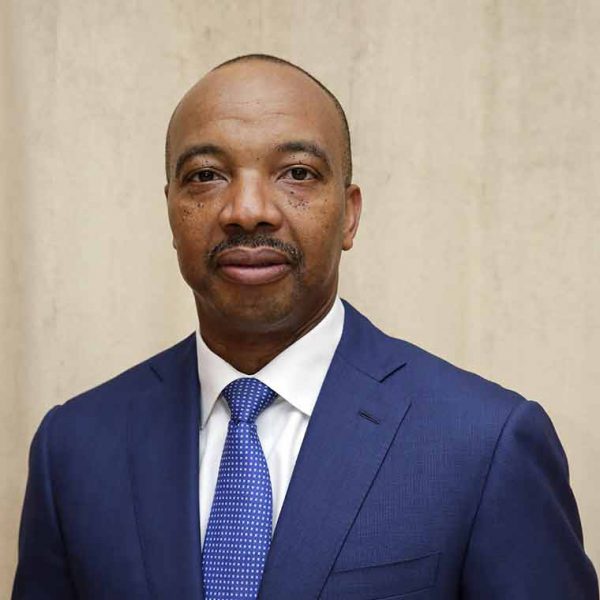...To get all news updates, Join our WhatsApp Group (Click Here)
Also Join our WhatsApp Channel (Click Here)
A storm is brewing in the oil and gas industry. It involves top dogs like Onajite Okoloko, the chairman of Eroton Exploration & Production Company Limited, Sahara Energy, and the Nigerian National Petroleum Corporation (NNPC) Limited. Okoloko, a co-founder of OandO Plc and formidable oil and gas player, started Eroton Exploration & Production Company (Eroton) in August 2013 as an independent and indigenous oil and gas company. The company commenced operations in 2015 and has become a key player in the upstream sector with a critical interest in the Niger Delta petroleum sector.
The Okoloko-led Eroton acquired 45 percent of the contentious oil mining lease (OML) 18, which covers a total area of 1,035 SQKM in an onshore swamp terrain in the Eastern Niger Delta, in a competitive bid conducted by the Department of Petroleum Resources. A consortium comprising Shell Petroleum Development Company, Total Exploration & Production Nigeria Limited, and Nigeria Agip Oil Company owned the OML 18 previously. Sahara and NNPC also own stakes in OML 18 as a joint venture. The JV was going on swimmingly until Eroton ran into troubled waters recently.
About a month ago, the NNPC sacked Eroton as operator of the oil mining lease (OML) 18 on the premise that the oilfield had not been producing for the past two years. A statement signed by Garba Mohammed, the NNPC spokesperson, declared, “In order to protect the joint venture (JV) investment in OML 18, the non-operating partners, NNPC Limited (55 percent interest) and OML 18 Energy Limited (“OML 18 Energy” – 16.20 percent interest), jointly owning 71.20 percent equity, removed Eroton as operator of the JV in line with the provisions of the joint operating agreement (JOA). NNPC Limited and OML 18 Energy further appointed NNPC Eighteen Operating Limited as operator of the JV.”
Among other reasons, the NNPC stated that production has declined from thirty thousand barrels per day (30,000 bpd) to zero and that Eroton defaulted in paying outstanding taxes, which forced the Federal Inland Revenue Service (FIRS) to close its head office.
Therefore, the NNPC, “as the majority shareholder with a unique stewardship responsibility to the federation, is committed to assuring the energy and financial security of the country is uppermost in its business decisions.” It further announced that Eroton and the Nigerian Upstream Regulatory Commission (NUPRC) have both been notified of the change in operatorship.
Curiously, the NNPC handed over the oilfield to one of its subsidiaries, the NNPC Eighteen Operating Limited. Eroton claimed then that it was not to blame for production failing, citing the unavailability of the Nembe Creek Trunk Line as the primary problem. The company further contended that unknown armed men allegedly acting on behalf of Sahara gained access to its property and displaced some of its staff.
Consequently, Eroton has filed a suit in the relevant court to ensure due process is followed in the takeover of operatorship and defend its legal right. The Managing Director of Eroton, Emeka Onyeka, said the NNPC and Sahara have been taking illegal actions contrary to the contract of the Joint Operating Agreement (JOA).
“In complete breach of the terms of the Joint Operating Agreement governing OML-18, and with total disregard for due process, the non-operators of OML-18, NNPC Limited and Sahara Field Production Limited (Sahara) (now known as OML 18 Energy Resource Limited) appointed a company, NNPC Eighteen Operating Limited as operator of OML-18. Eroton has issued a Notice of Arbitration to NNPC and Sahara in accordance with the terms contained in the JOA.
“On the basis of the lack of grounds for the purported takeover of operatorship in accordance with the terms of the JOA governing the block, lack of due process and flagrant breach of the rule of law,” Onyeka said. He implored the public to disregard the report that the company has been removed as operator of OML 18, stating that Eroton remains the operator and assured that the court will rule in the firm’s favour.
You can get every of our news as soon as they drop on WhatsApp ...To get all news updates, Join our WhatsApp Group (Click Here)
Also Join our WhatsApp Channel (Click Here)

















